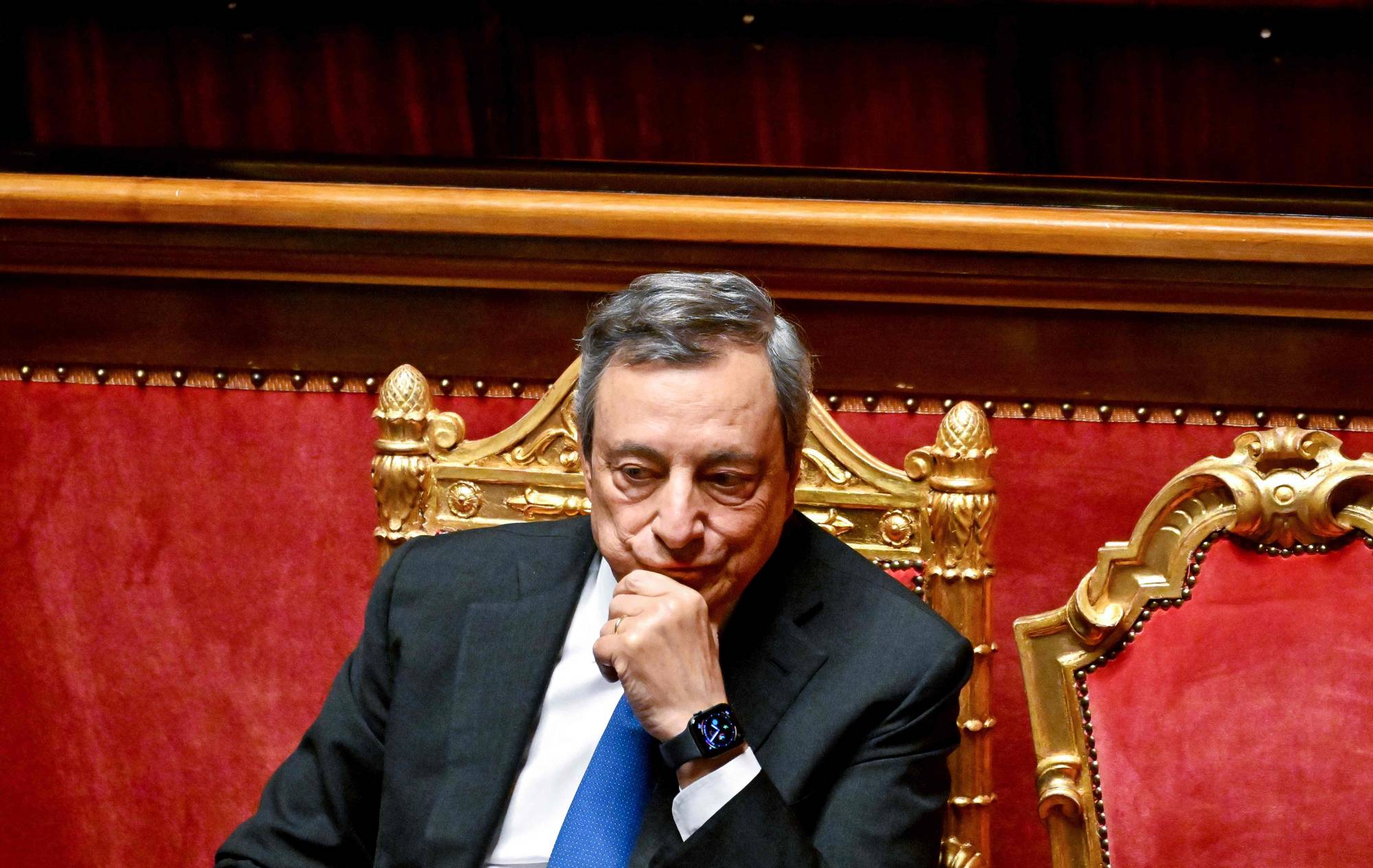Just over a month ago, Prime Minister Mario Draghi of Italy boarded an overnight train with the leaders of France and Germany bound for Kyiv. During the 10-hour trip, they joked about how the French president had the nicest accommodations. But, more importantly, they asserted their resolute support for Ukraine in the face of Russian aggression. The pictures of the men tucked in a cabin around a wooden conference table evoked a clubby style of crisis management reminiscent of World War II.
The mere fact that Draghi had a seat at that table reflected how, by the force of his stature and credibility, he had made his country — one saddled by debt and persistent political instability — an equal partner with Europe’s most important powers. Critical to that success was not only his economic bona fides as the former president of the European Central Bank but also his unflinching recognition that Russia’s war presented as an existential challenge to Europe and its values.
All of that has now been thrown into jeopardy since a multiflanked populist rebellion, motivated by an opportunistic power grab, stunningly torpedoed Draghi’s government last week. Snap elections have been called for September, with polls showing that an alliance dominated by hard-right nationalists and populists is heavily favored to run Italy come the fall.



















With your current subscription plan you can comment on stories. However, before writing your first comment, please create a display name in the Profile section of your subscriber account page.